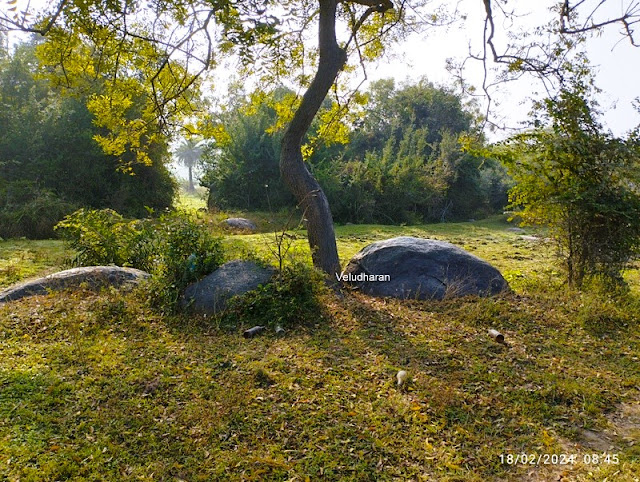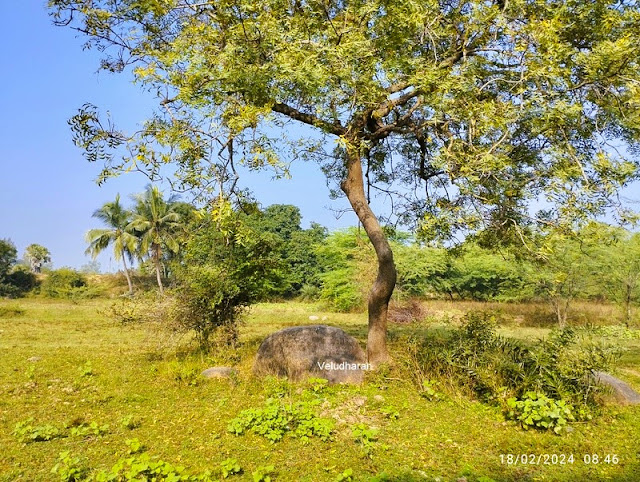The
visit to these Pallava and Chozha period inscriptions, for the upkeep of the
tank, on a boulder, was a part of the Shiva, Vishnu Temples and Pallava & Chozha
inscriptions visit, near Keerapakkam in Chengalpattu District on 18th
February 2022. An important message at the end of this article, please read.
These
Pallava and Chozha period inscriptions are inscribed on a boulder found in
the midst of the fields. The Pallava-period inscriptions are found on the east
side of the boulder, and the Chozha-period inscriptions are found on the top of the
same boulder. The Chozha period inscription is inscribed with lines on the top
and bottom. These inscriptions are inscribed for the endowment of the upkeep of
the tank and the donations made.
ARE,
1934-5, no. 20, This place Keerapakkam was called Kirappattur during the Pallava Period. This inscription belongs to the Pallava King
Kampa Varman’s 17th reign year. Found to be damaged in many places. It seems
to register a gift of 20 kuļi of land for the upkeep of the tank at
Kiraippättür by... di Sankan.
Pallava period inscriptions
Pallava period inscriptions
ARE,
1934-5, no. 21. This inscription on the top of the
same boulder belongs to Rajakesarivarman’s (Rajaraja Chozha) 17th reign
year. Records the gift of valamañji due on the lands at Kiraippāttür belonging to Kumarandai Irěvanan of Nayaru in Nāyaru-nădu of Pular-kõttam by his wife Kandi
for the upkeep of the local tank.
As per SII-Volume – XIII
Like the above, this is also evidently an inscription of Sundara-Chôļa because of its high regnal year and similarity of writing. It registers the gift of the valamañji (income derived) from the tank called Tikkiri-eri in the village Kiraippättür (Kirappakkam), which belonged to Kumārandai Irēvanan of Nayaru in Nayaru-nādu, a subdivision of Pular-köttam, by his wife Kandi, who should have inherited his property, in favor of the Urar of the village for the (improvement of the) tank. This valamañji is probably the same as the fee or toll välamañjādi mentioned in the Könerirajapuram inscription of Madhurāntaka Uttama-Choļa (S.1.1. III, p. 311) and in the Tiruvalangadu Plate (ibid., pp. 391 and 436).
Reference:
ARE,
1934-5, no. 20 & 21.
LOCATION
OF THE SLAB STONE: CLICK HERE
A round well near the inscription boulders
Attention to history enthusiasts and researchers. The boulders/rocks with inscriptions have been completely removed by the real estate owner. Hence, do not venture into this area to see these inscriptions. The photos taken during the field visit by Dr. Ramesh, Viluppuram, and Mr. Gogulnathan are enclosed.













No comments:
Post a Comment